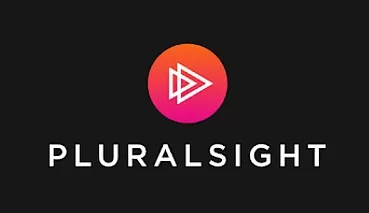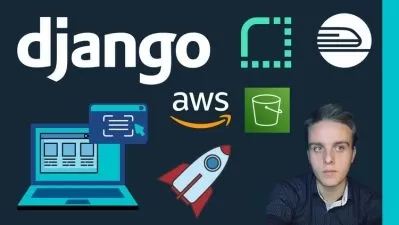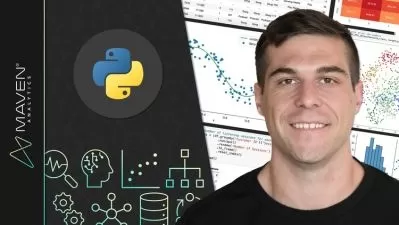01 - Introduction.mp4
01:20
02 - Python Promo.mp4
02:39
03 - Course Structure.mp4
02:53
04 - Python Overview, Part 1.mp4
04:02
05 - Python Overview, Part 2.mp4
02:38
06 - Introduction.mp4
02:14
07 - Installing Python 3 on Windows.mp4
01:24
08 - Installing Python 3 on Linux.mp4
01:31
09 - Installing Python 3 on Mac OS X.mp4
00:47
10 - The Read-Eval-Print-Loop or REPL.mp4
03:59
11 - Significant Whitespace in Python.mp4
04:30
12 - Python Culture and the Zen of Python.mp4
01:47
13 - Importing From the Python Standard Library.mp4
06:46
14 - Scalar Types - int, float, None and bool.mp4
06:27
15 - Relational Operators.mp4
01:40
16 - Conditional Statements.mp4
02:58
17 - While Loops.mp4
05:16
18 - Summary.mp4
03:11
19 - Introduction.mp4
00:42
20 - Strings.mp4
00:53
21 - Moment of Zen - Practicality Beats Purity.mp4
00:27
22 - Strings (Continued).mp4
04:40
23 - Bytes.mp4
01:42
24 - Lists.mp4
01:28
25 - Dictionaries.mp4
00:55
26 - For-Loops.mp4
01:07
27 - Putting it All Together.mp4
03:35
28 - Summary.mp4
02:17
29 - Introduction.mp4
01:20
30 - Creating, Running, and Importing a Module.mp4
02:08
31 - Defining Functions and Returning Values.mp4
01:01
32 - Distinguishing Between Module Import and Module Execution.mp4
02:50
33 - The Python Execution Model.mp4
01:50
34 - Main Functions and Command Line Arguments.mp4
03:52
35 - Sparse Is Better Than Dense.mp4
00:37
36 - Documenting Your Code Using Docstrings.mp4
02:24
37 - Documenting Your Code With Comments.mp4
00:50
38 - The Whole Shebang.mp4
02:00
39 - Summary.mp4
02:32
40 - Introduction.mp4
04:35
41 - Argument Passing.mp4
02:55
42 - Function Arguments in Detail.mp4
04:04
43 - Pythons Type System.mp4
01:21
44 - Variable Scoping.mp4
03:41
45 - Moment of Zen.mp4
00:29
46 - Everything Is an Object.mp4
01:27
47 - Summary.mp4
02:37
48 - Introduction.mp4
01:15
49 - Tuple.mp4
03:16
50 - String.mp4
05:50
51 - Range.mp4
02:53
52 - List.mp4
03:56
53 - Shallow Copies.mp4
03:08
54 - List Repetition.mp4
02:06
55 - More on List.mp4
02:14
56 - Growing Lists.mp4
00:24
57 - Reversing and Sorting Lists.mp4
02:32
58 - Dictionary.mp4
06:18
59 - Set.mp4
05:43
60 - Collection Protocols.mp4
02:07
61 - Summary.mp4
03:03
62 - Introduction.mp4
01:20
63 - Exceptions and Control Flow.mp4
01:03
64 - Handling Exceptions.mp4
01:57
65 - Programmer Errors.mp4
02:04
66 - Imprudent Error Codes.mp4
00:53
67 - Re-Raising Exceptions.mp4
00:31
68 - Exceptions as APIs.mp4
03:14
69 - Exceptions, APIs, and Protocols.mp4
01:28
70 - Do Not Guard Against Type Errors.mp4
00:55
71 - EAFP vs. LBYL.mp4
02:41
72 - Clean-Up Actions.mp4
01:26
73 - Moment of Zen.mp4
00:13
74 - Platform-Specific Code.mp4
02:20
75 - Summary.mp4
01:56
76 - Introduction.mp4
00:17
77 - List Comprehensions.mp4
02:02
78 - Set Comprehensions.mp4
00:26
79 - Dictionary Comprehensions.mp4
02:02
80 - Filtering Predicates.mp4
01:10
81 - Moment of Zen.mp4
00:55
82 - Iteration Protocols.mp4
02:57
83 - Generators.mp4
05:02
84 - Stateful Generator Functions.mp4
06:08
85 - Laziness and the Infinite.mp4
01:58
86 - Generator .mp4
02:42
87 - Batteries Included for Iteration.mp4
04:46
88 - Summary.mp4
02:22
89 - Introduction.mp4
01:27
90 - Defining Classes.mp4
01:45
91 - Instance Methods.mp4
01:10
92 - Initializers.mp4
04:21
93 - A Second Class.mp4
01:37
94 - Collaborating Classes.mp4
01:06
95 - Moment of Zen.mp4
00:30
96 - Example - Booking Seats.mp4
04:46
97 - Defining Implementation Details.mp4
02:11
98 - OO With Function Objects.mp4
02:12
99 - Polymorphism and Duck Typing.mp4
02:25
100 - Inheritance and Implementation Sharing.mp4
03:11
101 - Summary.mp4
03:02
102 - Introduction.mp4
02:38
103 - Writing Text Files.mp4
02:55
104 - Reading Text Files.mp4
02:28
105 - Appending to Text Files.mp4
00:51
106 - Files as Iterators.mp4
01:33
107 - Managing Files With Try..Finally.mp4
02:15
108 - Context Managers and with-blocks.mp4
01:33
109 - Simple Is Better Than Complex.mp4
00:30
110 - Writing Binary Files.mp4
06:01
111 - Bitwise Operators.mp4
01:00
112 - Fractal Images.mp4
01:38
113 - Reading Binary Files.mp4
01:44
114 - File Like Objects.mp4
02:03
115 - Closing With Context Managers.mp4
02:03
116 - Summary.mp4
01:54
117 - Introduction and unittest.mp4
08:49
118 - Debugging With PDB.mp4
07:57
119 - Virtual Environments.mp4
01:32
120 - Distributing Your Programs.mp4
05:06
121 - Installing Third-party Modules.mp4
03:54
122 - Moment of Zen.mp4
00:30
123 - Summary.mp4
06:08
files.zip











